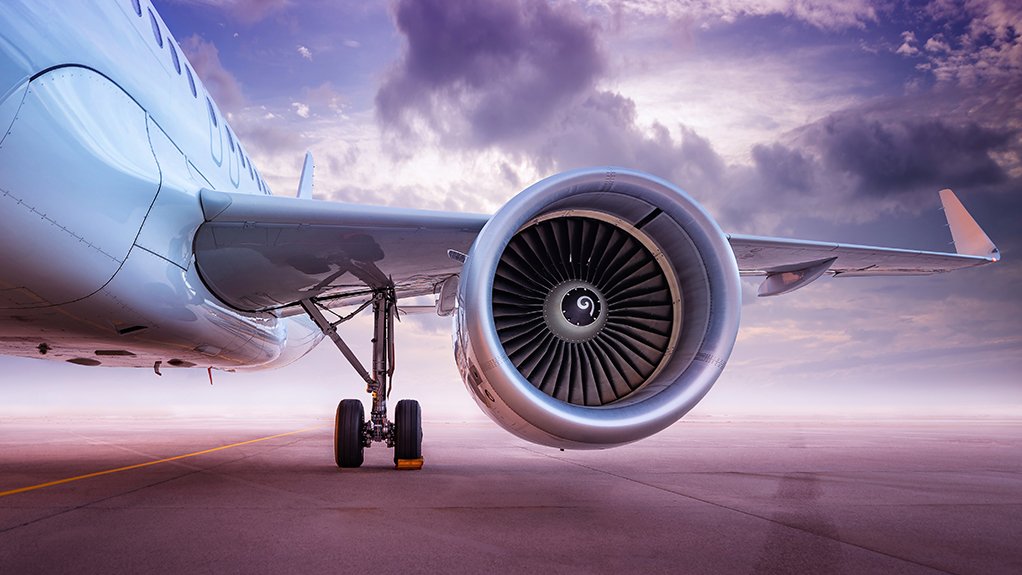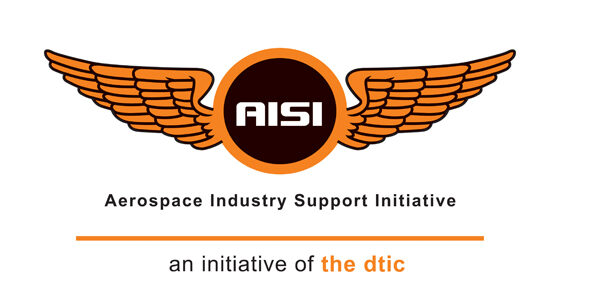
Published by Engineering News
By: Mamaili Mamaila, Features Writer and Social Media Specialist
Date: 11 September 2020
The Aerospace Industry Support Initiative (AISI) plans to continue building technology strategies with industry for long-term implementation amid the industry’s decline of late.
“The impact of the Covid-19 pandemic has been extremely severe on the aerospace industry, owing to the lockdown on air travel and tourism,” Department of Trade, Industry and Competition (DTIC) director of aerospace and defence, industrial competitiveness and growth Nokwanda Fipaza says.
However, she tells Engineering News that the decline was noticeable before the pandemic.
This decline can be attributed to three main factors, she says.
Firstly, limited local procurement, which results in even fewer small offset agreements for the manufacturing industry.
Secondly, cash-strapped State-owned enterprises, which results in limited local supply chain activity.
Thirdly, international original-equipment manufacturers (OEMs) are scaling down.
Consequently, fewer work packages are available for the South African industry, says Fipaza.
In response to these challenges, the South African aerospace industry is endeavouring to tap into a broader mix of international supply chains, owing to the few international OEMs which the local industry currently supplies.
“The DTIC further aims to put industry into contact with additional DTIC incentives that are not only for aerospace. Although bigger companies are also supported, the AISI aims to show impact through the development and support of small, medium-sized and microenterprises (SMMEs).”
Although there are “pockets of excellence” in niche areas, such as electronics and mine protected vehicles, as well as an exporting sail planes manufacturer, Fipaza adds that the local aerospace industry is very small and focuses almost exclusively on exports.
Further, the pandemic has prompted the industry to respond in innovative ways, from supplying personal protective equipment, and designing and supplying ventilators to assisting local supply chains in diversifying into additional markets.
As such, Fipaza highlights that the AISI has reprioritised its interventions to assist with industry building capability after Covid-19.
Some of the key elements in respect of manufacturing for the aerospace industry that AISI is aiming to tackle include advanced composites, rotational moulding and precision machining. The aim is to create high-value jobs which contribute meaningfully to the economy.
She relates that one of the main projects that the AISI is currently undertaking is the localisation of a 400 N gas turbine for defence and commercial purposes by propulsion systems solutions provider Cape Aerospace Technologies, in Cape Town.
AISI is also involved in the supplier development of a rotational moulding supplier that will produce the sacrificial thermoplastic core used in the patented Cellular Core Technology at aerospace engineering and manufacturing company Aerosud Aviation, in Centurion, Gauteng.
Meanwhile, for sail plane designer and manufacturer Jonker Sailplanes, AISI is involved in the development and manufacturing of a 24-m-long open-class sailplane to help it retain its global market lead in the open-class segment.
This is the time to increase cooperation and local content, as well as develop the industry’s niche capabilities for the international market, she enthuses.
“We are also looking into the development of a market-related radio frequency (RF) microwave subassembly for small satellites using additive manufacturing by advanced RF and microwave components designer and manufacturer LambdaG – an SMME in Cape Town.”
AISI is also involved in the implementation of the AS9100 aerospace quality management standard at electronics manufacturer Production Logix, in Pinetown, KwaZulu-Natal, Fipaza tells Engineering News.
In the drive to bolster exports for the industry, transformation remains a key imperative, as in doing so, maximum value addition and maximum local content on the manufactured components and products, is created, she explains.
AISI is a DTIC-led initiative which aims to improve the competitiveness of the local aeronautics, space and defence sectors – managed and hosted by the Council for Scientific and Industrial Research, in Pretoria, Gauteng.
Edited by: Zandile Mavuso, Creamer Media Senior Deputy Editor: Features
